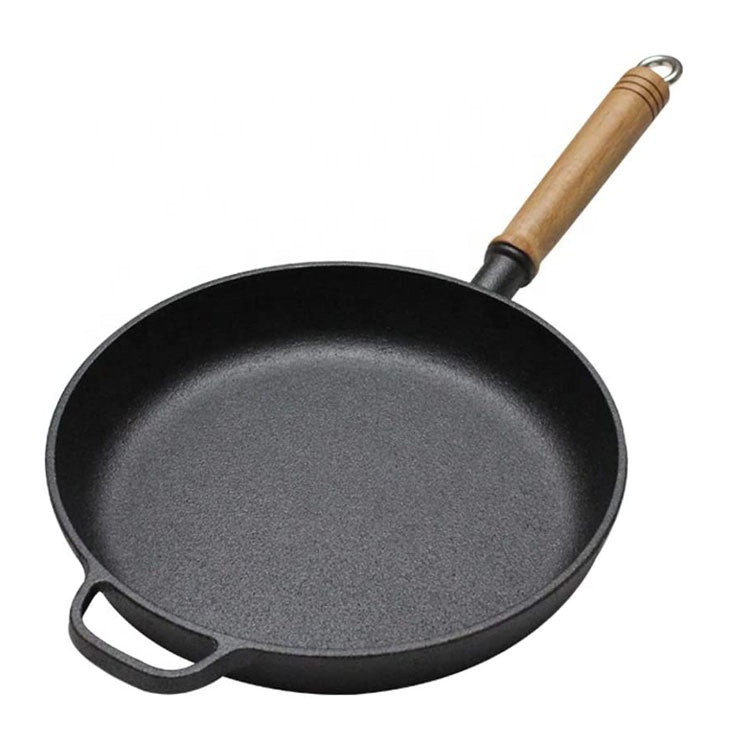
Exploring the Versatility of a Flat Dutch Oven for Modern Cooking
Discovering the Flat Dutch Oven A Culinary Game-Changer
In the realm of cooking, the Dutch oven has long been celebrated for its versatility and ability to deliver flavorful dishes. However, the advent of the flat Dutch oven has taken this trusty kitchen apparatus to new heights, offering a unique twist that can revolutionize home cooking.
What is a Flat Dutch Oven?
Unlike traditional Dutch ovens that have a deep, rounded shape, the flat Dutch oven features a wider and shallower design. This innovative structure allows for increased surface area, making it perfect for a variety of cooking techniques. Whether you’re searing meats, sautéing vegetables, or baking bread, the flat Dutch oven’s design promotes even heat distribution, ensuring your dishes cook uniformly.
Benefits of Using a Flat Dutch Oven
One of the standout features of the flat Dutch oven is its versatility. The wide cooking surface is ideal for tasks that require more space, such as browning meats or making large batches of sauces. Moreover, its shallower design reduces cooking times, making it an excellent choice for those who want delicious meals without spending hours in the kitchen.
The flat Dutch oven is also a champion of heat retention. Made from cast iron, it holds heat exceptionally well, allowing for prolonged cooking at lower temperatures. This makes it perfect for slow-cooked dishes, where the flavors meld beautifully over time. Additionally, the heavy lid traps moisture, which helps in creating tender and juicy results.
Cooking Techniques to Try
There are numerous techniques to explore with a flat Dutch oven that can enhance your culinary repertoire. Here are a few
flat dutch oven

1. Searing and Braising The larger surface area facilitates a perfect sear on meats, locking in juices and flavor before slow cooking. Simply sear your chosen protein, add aromatic vegetables and braising liquid, cover, and let it simmer until tender.
2. Stir-Frying The shallower shape allows for efficient stir-frying, offering easy access to the ingredients. The even heat distribution means that your vegetables cook beautifully without burning.
3. Baking Many chefs have turned to flat Dutch ovens for baking bread. The cast iron retains heat, creating a perfect environment for crusty loaves. Just place your dough inside the preheated oven and let the magic happen.
4. Casseroles and Gratins The wide design is perfect for layering ingredients in casseroles. Expect even cooking and an appealing presentation right out of the oven.
Care and Maintenance
To ensure your flat Dutch oven remains a staple in your kitchen for years to come, proper care is essential. Like traditional cast iron cookware, it requires regular seasoning. After each use, clean it with warm water and a soft brush. Avoid using soap, as this can strip the seasoning. Once cleaned, dry it thoroughly and apply a light layer of oil to keep it in perfect condition.
Conclusion
The flat Dutch oven exemplifies the evolution of kitchen tools, merging traditional craftsmanship with modern practicalities. Whether you are an experienced cook or a culinary novice, this versatile cookware can enhance your cooking experience. Embrace the change and explore the possibilities that a flat Dutch oven brings to your kitchen—your meals will thank you!
-
Season Cast Iron Perfectly with GPT-4 Turbo TipsNewsAug.01,2025
-
High Quality Cast Iron Cookware - Baixiang County Zhongda MachineryNewsAug.01,2025
-
Premium Cast Iron Pan: Durable & Perfect HeatNewsAug.01,2025
-
High Quality Kitchen Durable Black Round Cast Iron Cookware Pancake Crepe Pan-Baixiang County Zhongda Machinery Manufacturing Co., Ltd.NewsAug.01,2025
-
Cast Iron Cookware - Baixiang County Zhongda Machinery | Nonstick, Heat ResistanceNewsAug.01,2025
-
High Quality Kitchen Durable Black Round Cast Iron Cookware - Baixiang County Zhongda Machinery | Non-Stick, Heat Retention, DurableNewsJul.31,2025


